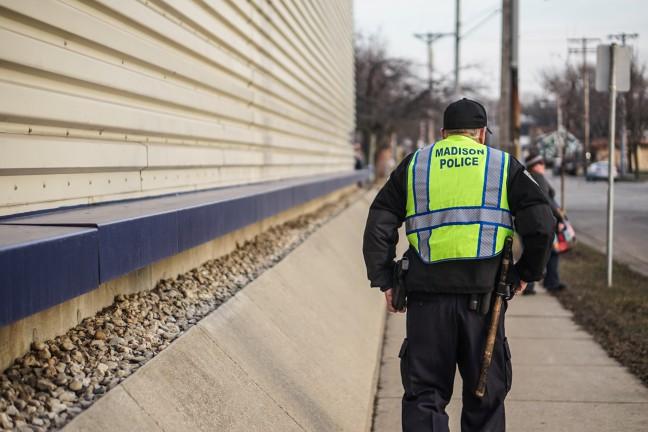A Republican bill introduced by the Wisconsin state Assembly would create requirements for law enforcement agencies on how they use body cameras and what body camera footage they can release.
Under the bill introduced by Rep. Jesse Kremer, R-Kewaskum, body camera footage would remain confidential unless it shows death, injury, arrest or searches. If the footage was recorded in a location where the individual has a “reasonable expectation of privacy,” such as a home, law enforcement would have to get written consent from victims, witnesses and owners of the location.
The footage would have to be kept for a minimum of 120 days. After that, it would be able to be deleted.
One of the main concerns the legislation is trying to address is privacy. Kremer said with more technology, the less privacy there is and the more careful people have to be.
Currently, Wisconsin has no legislation regarding body cameras and body camera video. This bill, Kremer said, would create a clear line between what should and should not be made public.
“We still want people to see this video footage but just because something is a government record and was made a government record does not mean it should necessarily be made public,” Kremer said.
Kremer brought up an example of how if police officers respond to a sexual assault and capture the scene on video using body cameras, the victim would potentially end up reliving a horrible experience for the rest of her life if the case goes to court because the video would be public.
Also, if police respond to a call at someone’s house, anyone could request footage of that video and see the inside of the home.
“With all the advances in technology, we have to be pretty careful,” Kremer said. “Yes, these are excellent tools, but there should be some level of privacy.”
Wisconsin Freedom of Information Council, one of the groups that opposes the bill, has raised concerns regarding the “cumbersome process” the bill would create regarding blocking access to footage that the public has a right to see, Wisconsin Freedom of Information Council president Bill Lueders said.
Footage will go a long way toward establishing what really happened in a situation that is in dispute, Lueders said.
“We have a right to an accurate view of what happens when police officers we pay for interact with others,” Lueders said.
The solution to the concerns, Lueders said, would be to treat body camera footage like every other record in the state, meaning it’s open and subject to the balancing test. Under the balancing test, the record would be public unless the argument is made that it would do more harm than good if released.
“It’s a somewhat subjective standard, but it’s a standard that’s been used for all other records in Wisconsin,” Lueders said. “The balancing test would be the cure.”
Public Safety Review Committee discusses MPD involvement in schools, body cameras
Kremer, however, said even though some argue there will be less information available, law enforcement agencies that have been reluctant to implement body cameras because of privacy concerns will now have those concerns addressed.
The bill with a recently introduced amendment will likely be voted on in committee in a couple weeks, Kremer said.













